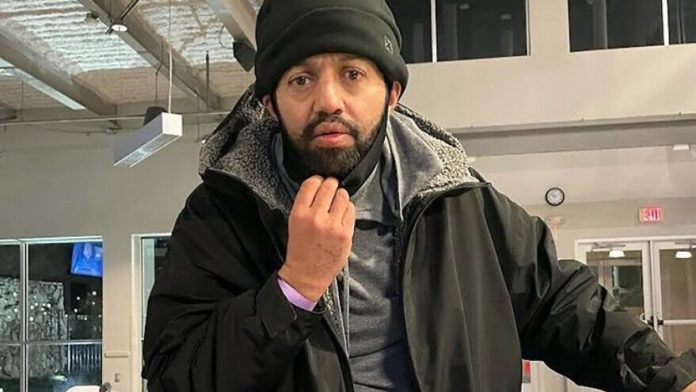
DALLAS – The British man who took hostages at a Texas Reform synagogue last month tried to buy a machine gun, cocaine and methamphetamine from the felon who ultimately sold him a pistol used in the kidnapping, an FBI agent testified Wednesday.
Describing an interview he conducted with Henry Dwight “Michael” Williams, FBI Special Agent Taylor Page testified that Malik Faisal Akram sought the drugs and heavy weaponry in the days before he took a rabbi and three others hostage at Congregation Beth Israel in Colleyville, Tex.
Officials have said Akram took the hostages in an ill-fated effort to demand the release of Aafia Siddiqui – an American-educated Pakistani woman widely known as “Lady al-Qaeda” who is serving an 86-year sentence for trying to kill U.S. soldiers.
Williams, 32, whom prosecutors charged with a gun violation last month, ultimately sold Akram a Taurus G2C pistol for $150, Page testified. But the agent said Williams claimed Akram had asked for a machine gun “or some kind of weapon that contained a lot of bullets.” The sale occurred on Jan. 13 – two days before the hostage taking, Page said.
Akram was shot and killed by FBI agents who stormed the synagogue after an 11-hour standoff, authorities have said. One hostage had been released hours earlier, and the rest escaped almost simultaneously, after the rabbi threw a chair at his captor, authorities and the rabbi have said.
Page’s testimony on Wednesday came at a hearing to determine whether Williams should be detained while he awaits trial. Because Williams was a felon who had previously been convicted of aggravated assault with a deadly weapon and attempted possession of a controlled substance, he was prohibited from carrying or selling firearms, authorities have said. Prosecutors argued he was a danger to the community and a flight risk, and U.S. Magistrate Judge Rebecca Rutherford ultimately ordered that he remain behind bars.
Officials have said investigators do not believe Williams knew of Akram’s plans to storm the synagogue. Page testified Wednesday that Williams claimed Akram called him “out of the blue,” and that he believed someone else had passed along his phone number. Page said Akram told Williams “he wanted to use the gun for intimidation” against someone who owed him a debt.
Akram’s phone data shows he first called Williams on Jan. 11. The two exchanged many more calls two days later, when they met in south Dallas, the FBI agent testified. He said that Akram had withdrawn between $500 and $550 in cash.
Williams, Page testified, admitted to having sold guns on the street 10 to 15 times before. The gun he sold to Akram had been reported stolen. The agent testified that one of Williams’s relatives found out about the Jan. 13 gun sale and warned Williams the person to whom he had provided the weapon was “going to hurt” someone. Williams, the agent testified, responded that he needed the money.
The Post has previously reported that Akram conducted Internet searches for influential rabbis, an imprisoned terrorist and gun and pawnshops in the days before taking hostages at the synagogue, and that FBI agents were trying to piece together his movements in the United States.
Akram arrived at John F. Kennedy International Airport in New York on Dec. 29 and a few days later flew to Dallas, where he stayed at facilities that serve the homeless and got into at least one confrontation at a local mosque, according to law enforcement officials and others familiar with his movements.
Law enforcement officials said Akram was known to British security officials. The BBC reported that MI5, Britain’s counterintelligence and security agency, investigated him in 2020 as a “subject of interest” but concluded that he no longer posed a threat. His family members in Britain have said he struggled with mental illness.
(c) 2022, The Washington Post · Jack Douglas, Matt Zapotosky
{Matzav.com}